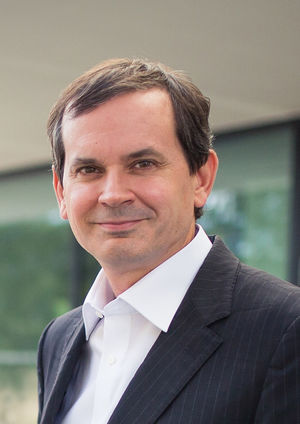Rudolph Research Group
Current Projects
Dietary restriction (DR) is known to be the most powerful intervention to delay aging across species. However, recent studies from our lab indicate that DR is less effective at improving the function of stem cells when begun later in life. We have initiated a new line of research aiming to identify genetic, epigenetic, or dietary interventions to boost the ability of DR to induce health benefits when started at an advanced age.
In a second focus of our work, we are investigating aging-associated changes in metabolism in stem cells and organs. Our work has identified an age-dependent decline in fat metabolism in the liver. We have discovered a dietary intervention that has the potential to reactivate fat metabolism in the livers of aged mice. Translational research and a human pilot trial are being planned. We envision that this newly discovered dietary intervention could be used to treat non-alcoholic fatty liver disease (NAFLD) – one of the most frequent metabolic diseases in aging humans.
From a translational point of view, these findings are of great importance, since dietary interventions are currently regarded as one of the most realistic therapeutic approaches to combat aging. Our data provide new evidence that metabolism changes with aging and that it is possible to reprogram metabolism to a more youthful state through late life dietary interventions.
Another line of research in our lab focuses on the question whether growth and metabolism at an early age influence the aging trajectories of stem cells and metabolic aging in later life. Our work provides experimental evidence that growth signaling and metabolic activity during development and early adulthood influence key aging phenotypes of hematopoietic stem cells (HSCs), such as the expansion of myeloid-biased HSCs.
We aim to mechanistically understand how early life stress (such as metabolic activity as well as growth factor signaling or inflammatory signaling) creates a memory in stem cells and tissues. We analyze how this memory in turn influences aging, and how genetics or dietary intervention can reverse such effects of cell and tissue memory to ameliorate the aging process.
Contact

K. Lenhard Rudolph
Group Leader
+49 3641 65-6818
lenhard.rudolph@~@leibniz-fli.de
Gundula Bergner
Secretary
+49 3641 65-6331
gundula.bergner@~@leibniz-fli.de
Team*
| Name | Phone | Position | |
|---|---|---|---|
| Karl Lenhard Rudolph | +49 3641 656818 | Group Leader | |
| Qian Wang | --- | Postdoc | |
| Nino Geisler | +49 3641 656838 | Doctoral Candidate | |
| Deepthi Guturu | +49 3641 656838 | Doctoral Candidate | |
| Anjalika Malik | +49 3641 656838 | Doctoral Candidate | |
| Louis Charles Nabineau | +49 3641 656838 | Doctoral Candidate | |
| Yidong Wang | +49 3641 656838 | Doctoral Candidate | |
| Elif Yasar | --- | Doctoral Candidate | |
| Thomas André | +49 3641 656838 | Scientist | |
| Melanie Loll | +49 3641 656814 | Research Engineer | |
| Zihan Liu | +49 3641 656838 | Master Student | |
| Mahshid Yarahmadi Khorasani | --- | Master Student |
* incomplete due to Data protection









